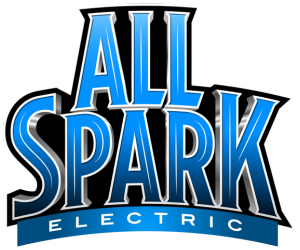If you’ve ever walked into your home and caught a sudden burning plastic smell in the house, your first thought was likely: “Is something on fire?” That acrid, chemical scent can be alarming—and for good reason. In many cases, it points to an electrical issue that needs immediate attention. At All Spark Electric in Fort Worth, TX, we’ve seen firsthand how catching the problem early can prevent costly damage or even dangerous house fires.
In this post, we’ll walk you through the most common causes of that burning plastic odor, what to inspect first, and when to call a licensed electrician.
What Does a Burning Plastic Smell in the House Indicate?
A burning plastic smell in the house is often caused by overheated electrical components. Wires, circuit breakers, outlets, or appliances that are malfunctioning can begin to melt their plastic insulation, releasing a sharp, pungent odor.
Plastic casing is designed to withstand some heat—but not prolonged overheating. If you’re detecting this smell without any obvious source like cooking or a space heater, the issue is likely hidden within your walls, outlets, or electrical devices.
Burning Plastic Smell in House from Electrical Outlets
One of the most common culprits behind a burning plastic smell in the house is a damaged or overloaded outlet. You may notice:
-
Discoloration or charring around the outlet
-
A warm faceplate
-
Intermittent power to plugged-in devices
-
Buzzing or crackling sounds
These are red flags that the outlet is either improperly wired, overloaded with too many devices, or internally damaged. If you suspect this, stop using the outlet immediately and contact a licensed electrician—especially if you live in an older Fort Worth home with outdated wiring.
Burning Plastic Smell in House Caused by Overloaded Circuits
Your home’s circuits are designed to handle a certain amount of electrical load. If you’re running too many devices on a single circuit—like in a home office or media room—you can create excessive heat in the wiring behind your walls.
That excess heat can begin to melt the wire insulation, triggering the distinct burning plastic smell in your house. Signs of this include:
-
Tripped breakers
-
Flickering lights
-
Reduced power output in some devices
While your breaker panel is supposed to trip before this becomes dangerous, worn or faulty breakers may fail to do so. If you notice these symptoms, it’s time to have your panel and wiring inspected.
HVAC Systems Can Cause Burning Odors Too
Sometimes, the burning plastic smell in house issues are linked to your heating or air conditioning system. Furnaces, in particular, may emit strange odors when they first kick on after a long period of inactivity. But if the smell is persistent or coming through your vents, it could be caused by:
-
A melting capacitor or circuit board
-
Debris in the HVAC unit
-
Motor overheating
If your HVAC system is the source of the smell, turn it off and schedule an inspection right away. Electrical malfunctions within these systems are rare, but when they happen, they can escalate quickly.
Appliances Are Also Common Sources
Another possible cause of a burning plastic smell in the house is a malfunctioning appliance. This could be a:
-
Microwave
-
Dishwasher
-
Clothes dryer
-
Space heater
-
TV or gaming console
If the odor started after you used a specific appliance, unplug it and check the plug and cord for heat or discoloration. Many appliances have internal fuses, but if those fail or if a motor overheats, the plastic inside can begin to melt.
Never continue using an appliance that’s producing a burning smell—it’s a fire risk. Have it inspected or replaced.
What to Do Immediately if You Smell Burning Plastic
If you detect a burning plastic smell in your house and can’t immediately find the source:
-
Unplug all suspect appliances in the area.
-
Check outlets and switches for heat or discoloration.
-
Flip the breaker for the affected room if you’re unsure where the issue is.
-
Ventilate the area by opening windows and turning on fans.
-
Avoid using extension cords or power strips until the issue is resolved.
If the smell persists or you can’t locate the source, err on the side of caution and call a licensed electrician. It’s far better to investigate early than risk an electrical fire.
When to Call an Electrician
Some homeowners try to resolve electrical issues themselves, but if you notice any of the following, it’s best to leave it to a professional:
-
Persistent burning smell with no clear source
-
Heat or scorch marks on outlets or switch plates
-
Frequent breaker trips in the same area
-
Old wiring or aluminum wiring in the home
-
Flickering lights when using appliances
At All Spark Electric, we provide prompt inspections and electrical repairs across Fort Worth. We’ll identify the source of the smell, test your outlets and breakers, and ensure everything meets current safety codes.
Preventing Electrical Odors in the Future
To avoid the return of a burning plastic smell in your house, consider these safety steps:
-
Don’t overload outlets or power strips.
-
Use heavy-duty surge protectors with appliances.
-
Have old wiring or breaker panels upgraded.
-
Schedule routine electrical inspections—especially in homes 20+ years old.
-
Replace worn-out appliances that show signs of overheating.
Regular maintenance, especially in older homes throughout Fort Worth, can prevent minor issues from turning into safety hazards.
Final Thoughts
A burning plastic smell in the house is not something to ignore. Whether it’s a faulty outlet, an overloaded circuit, or an overheating appliance, this smell is a warning sign that something electrical is going wrong. Early action can protect your home, your family, and your investment.
If you’re unsure what’s causing the smell or want peace of mind with a full electrical safety check, contact All Spark Electric today. Our experienced team in Fort Worth is here to help you stay safe, powered, and protected.


